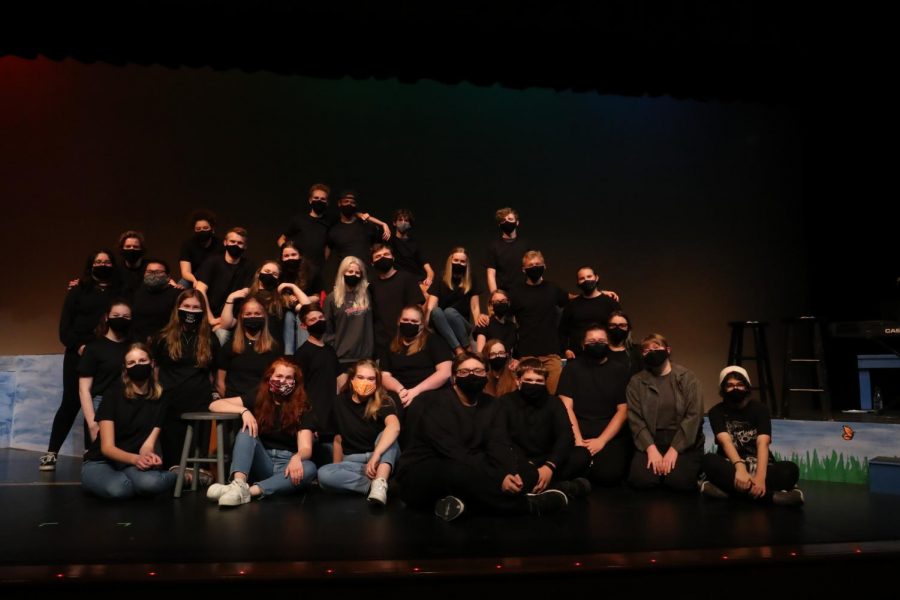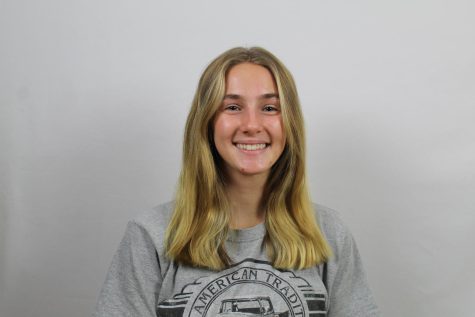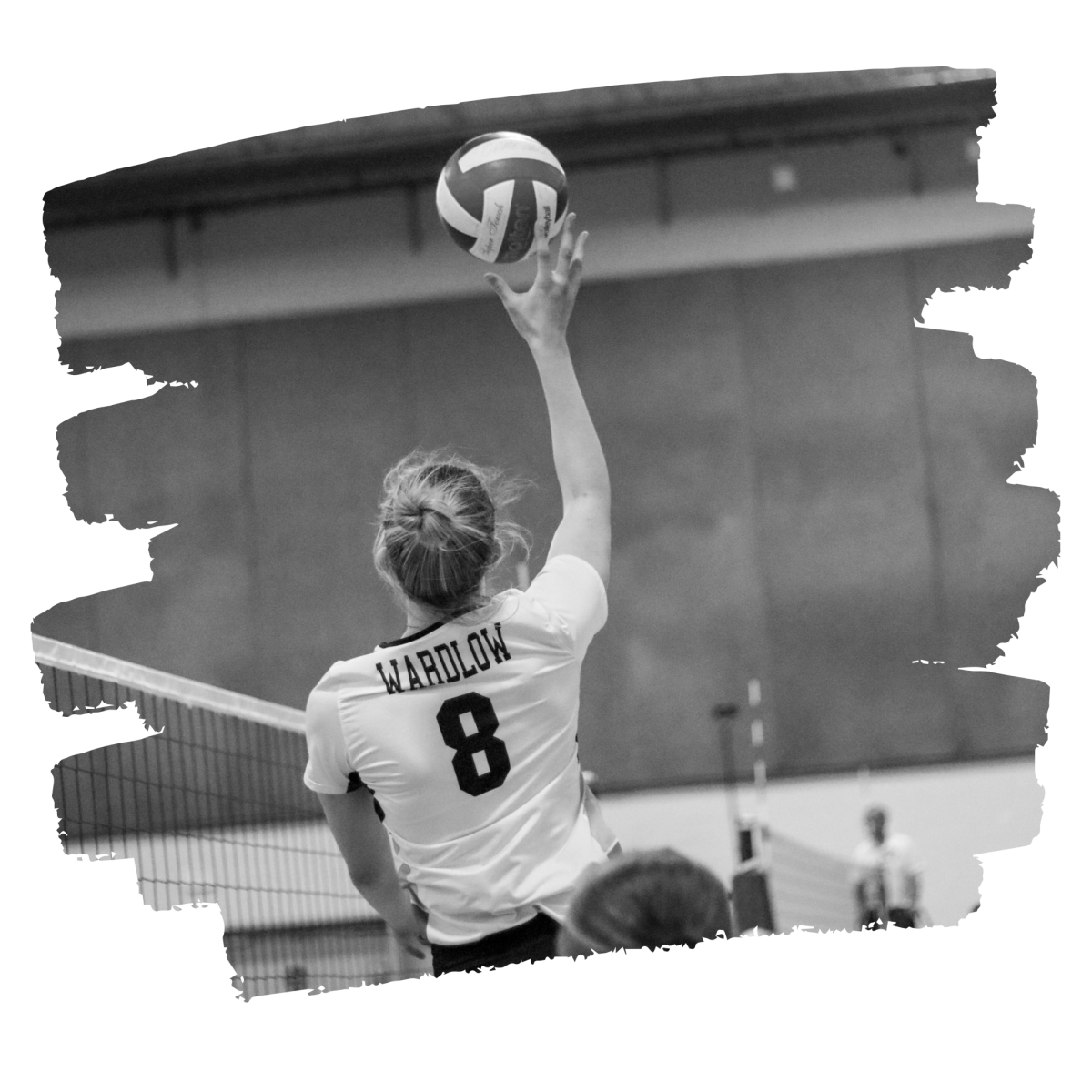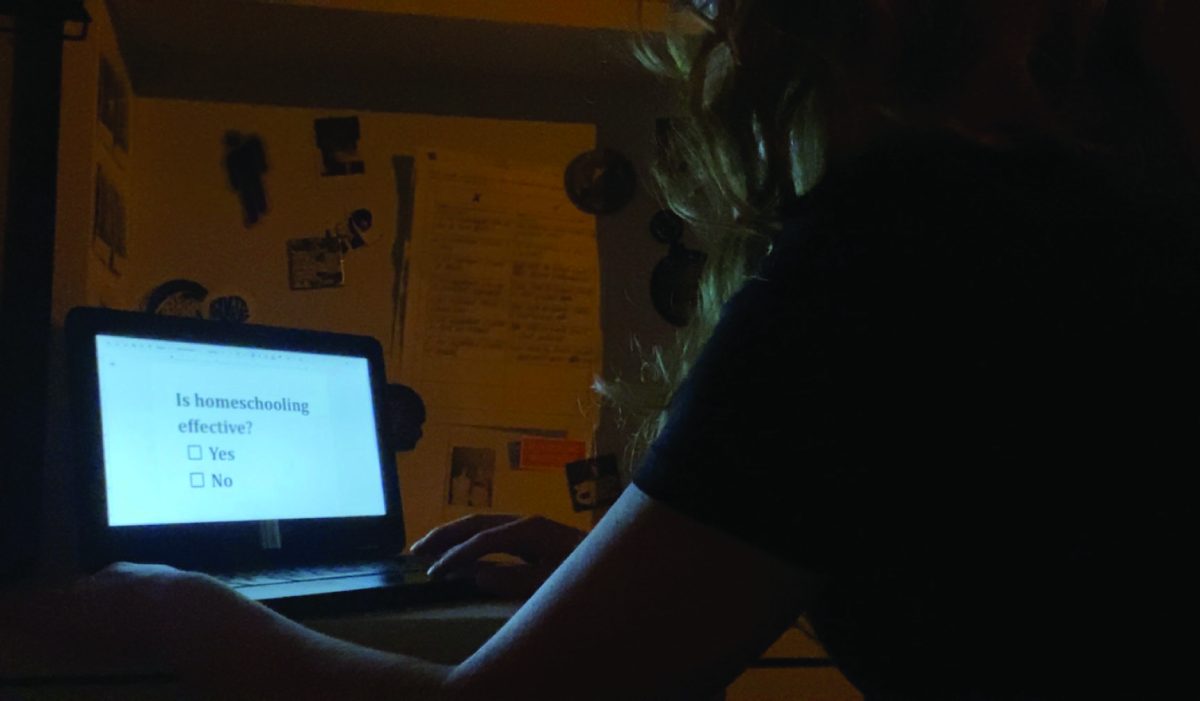Southeast theater makes a comeback with fall play
The full cast and crew of “All I Really Need to Know I Learned in Kindergarten” poses for a group photo after their performance.
October 6, 2020
Performances of the LSE fall play, “All I Really Need to Know I Learned In Kindergarten” have wrapped up after weeks of hard work and the first ever attempt at online live streaming.
While only immediate family members were allowed to attend the play in person, many friends and relatives bought their tickets online and watched via livestream. For junior Marielle Hinrichs, this was an opportunity for her out-of-state relatives, who have never been able to see her perform, to watch her on stage.
Hinrichs said that this year’s play is unusual compared to others because, rather than following a single plot line, it unfolds in the format of simple anecdotes with lessons that were supposedly learned in kindergarten, and how they translate to adult lives in a more sophisticated structure. Director Tyler Lambley makes it clear that his choice of this performance was not random, but actually has significance to recent events.
“With everything going on in the world–a pandemic, a presidential election, a social justice movement–doing a play that focuses on reminding us of the simple life lessons that were instilled in us in kindergarten–share, play fair–allowed us to bring hope and joy into every performance,” Lambley said.
The youthful theme was reinforced during intermission with a display of cast members’ pictures from kindergarten, with each sharing a memory from that age.
Another unusual thing, in Hinrichs’s opinion, is that the cast didn’t have specific roles.
“What’s unique about this show is there aren’t really any characters, so when you look at our programs, nobody has a character name or anything like that,” Hinrichs said. “It’s just kind of vignettes and scenes, so I am in a few scenes, and everyone has at least one kind of bigger, chunkier monologue. Mine is called ‘The Bench’ and I talk about not being afraid of death.”
Along with the available livestream, many other accommodations were made for the play to help mitigate the spread of COVID-19. Masks played a vital role, with cast and crew wearing them 100 percent of the time in rehearsals. The only time masks came off during performances were when actors had multiple lines at once.
“So there are a few scenes where I might have one or two lines and I’ll just keep my mask on during performances,” Hinrichs said. “But then people who have their monologues get to take theirs off, but we’re never facing anyone while our masks are off.”
Another reason the play was chosen was because it’s very low-contact , with no one touching more than twice in the play. Another choice made by Lambley was to double cast the show. This means there were two actors for every character, so if people had to go into quarantine over the course of rehearsals or performances, they had someone who could fill in for them. The difference between double casting and understudies is that the second cast still got the chance to perform. The performances took place on Thursday, Oct. 1, Saturday, Oct. 3, and Sunday, Oct. 4, so the first cast performed Friday and Sunday while the second cast performed on Saturday.
“What was really special about the double casting is that it allowed collaboration between actors in the same role,” Lambley said. “Each scene had a different feel based on which cast was performing–something that allowed the actors to see that there isn’t just one right way to do a performance. Our own life experiences and interpretations of the script create wholly different characters on stage, and that’s ok.”
Receiving the green light to put on the show after last year’s spring musical, “Mama Mia!” was canceled was a big deal for the cast. Many people involved in the theater department spent all summer in anticipation not knowing what was going to happen, so being given the opportunity to continue almost as normal was a big victory.
“Our director has said that it has really made him feel fulfilled again and I think that’s true for a lot of people in the cast and crew,” Hinrichs said.
Lambley was focused on keeping the play more mellow to get back into the swing of things, according to Hinrichs.
“Getting to do this play really has been less stressful, and I think there’s just been really good vibes throughout the whole thing and everyone’s just happy getting to work together again,” Hinrichs said.
Lambley claims he is very happy with the results of the play and trusted his students throughout the process. “We use the terms ‘we’re only as strong as our weakest ensemble member,’” Lambley said. “And that was upheld beautifully by both the cast and crew.”










